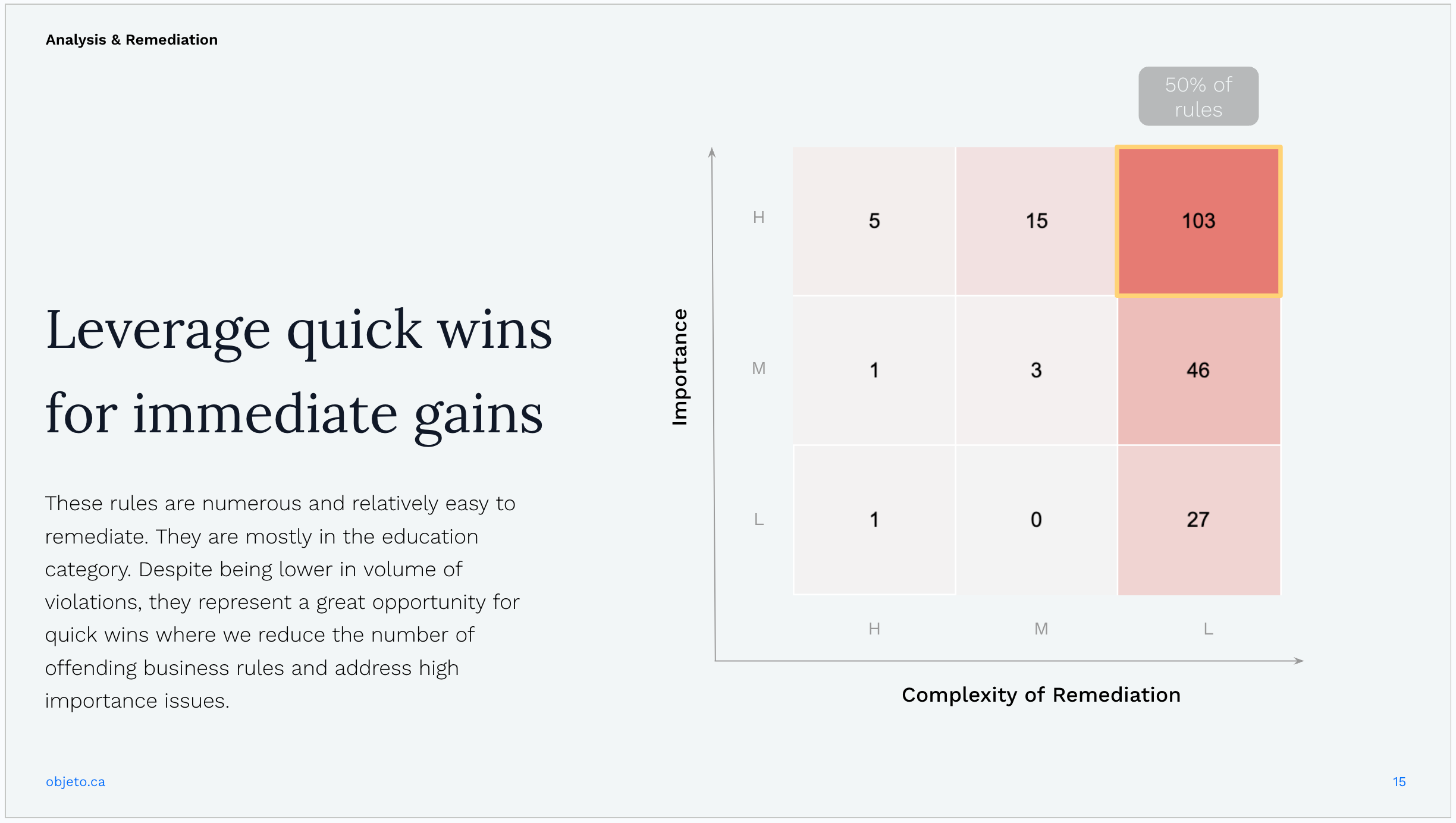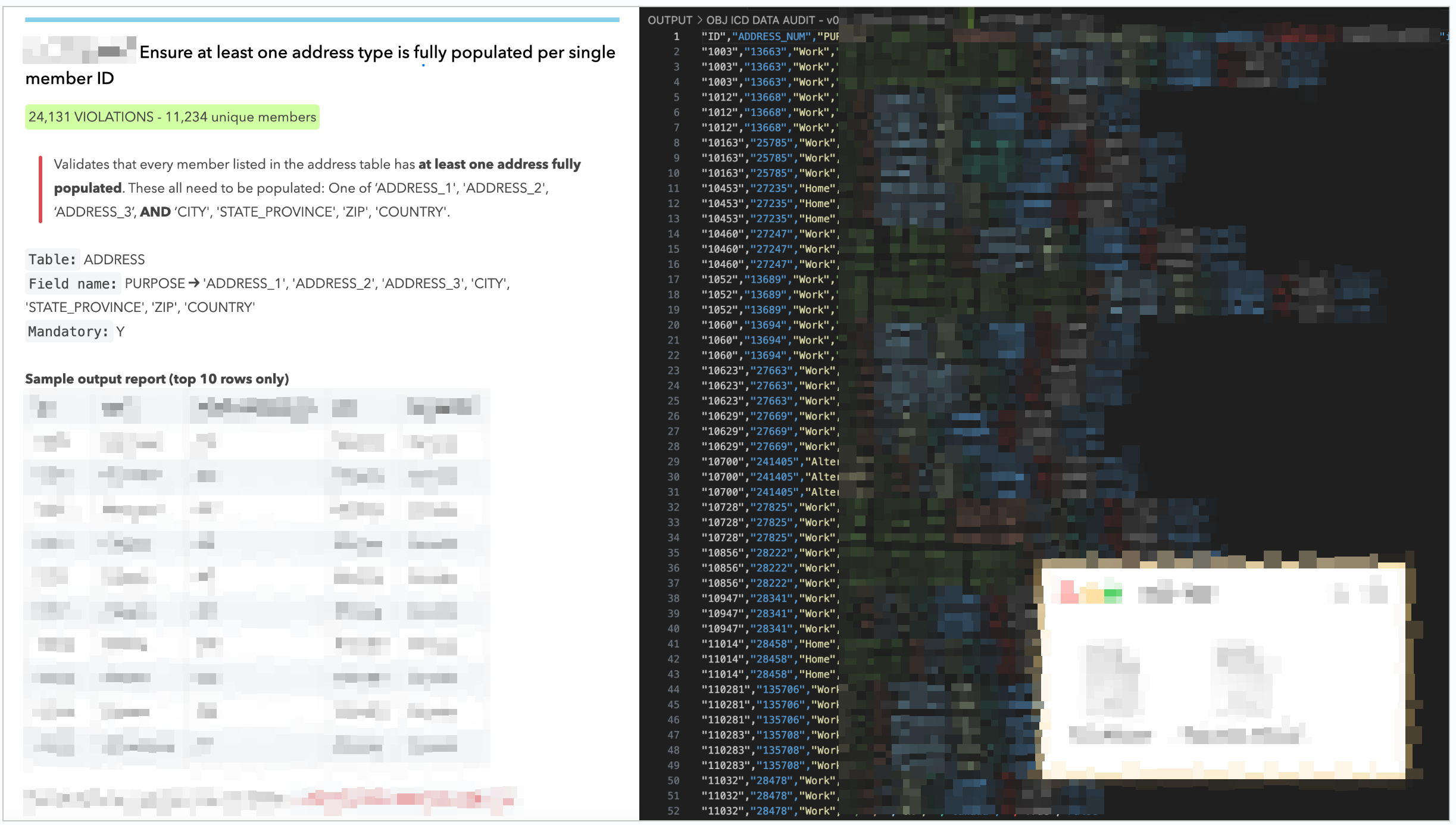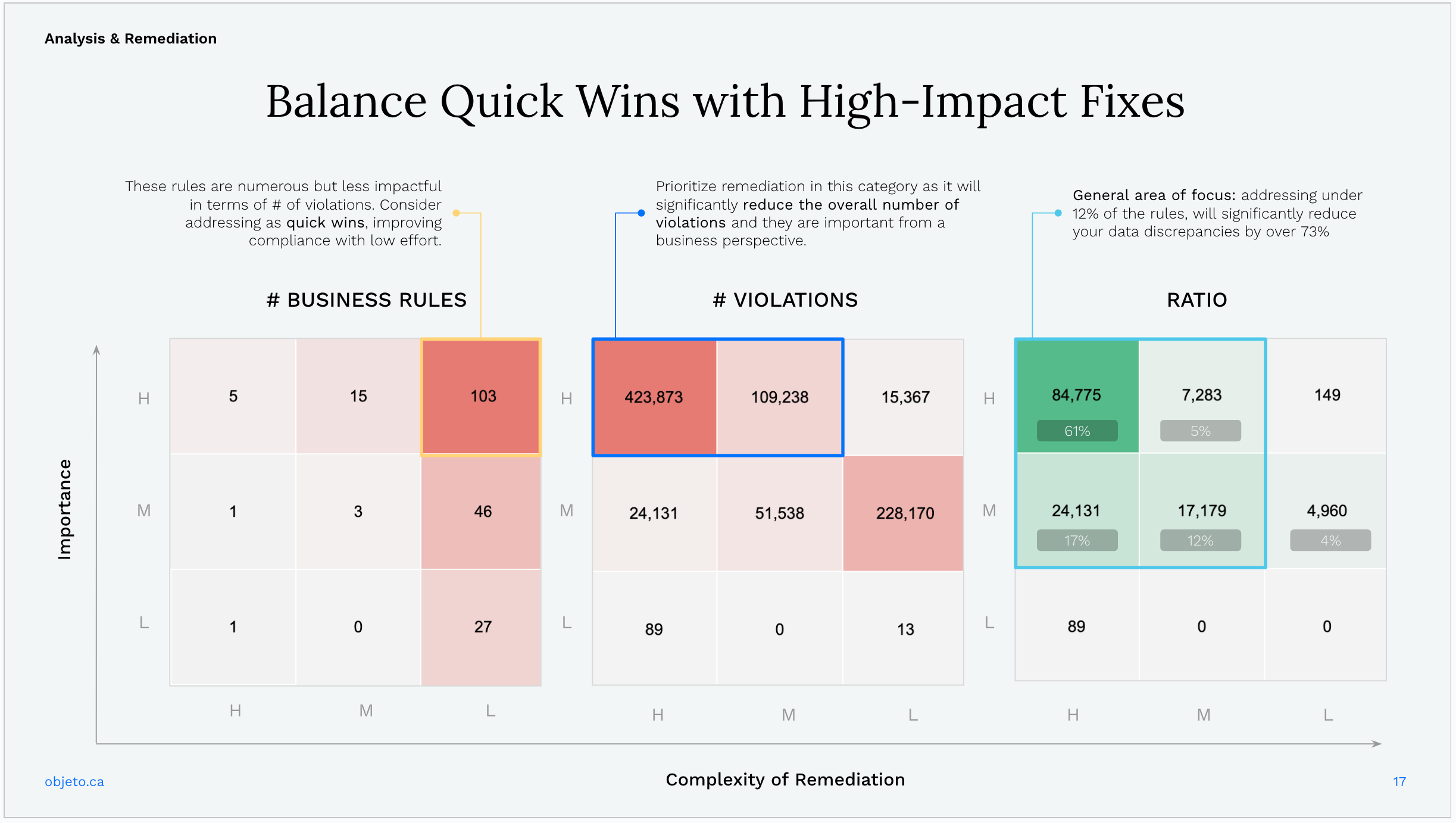Nonprofits depend on accurate data to fulfill their missions, but data quality issues can build up over time, causing serious challenges. Objeto recently performed a data audit for a nonprofit association experiencing these problems. The audit pinpointed key data discrepancies and outlined a plan for better data management. Here’s how Objeto helped this nonprofit improve data quality and boost operational efficiency.
A new client reached out to Objeto with a pressing issue. They had been using the iMIS CRM system for several years and had accumulated a significant amount of data quality debt. With a potential migration to a new CRM platform or a new version of iMIS on the horizon, they needed to understand the extent of their data issues. Knowing Objeto's expertise in similar projects, especially with the iMIS CRM, the client sought our help to uncover and address their data quality problems.
During the audit, Objeto's team meticulously reviewed over 200 business rules and analyzed a few million rows of data. We discovered over half a million discrepancies, ranging from minor to critical. While the client expected some issues, they were unaware of the specific problems and their locations. The audit revealed numerous discrepancies between their Learning Management System (LMS) and iMIS, as well as several integrity issues within the iMIS data itself. Root causes were identified as manual work across systems causing data discrepancies and the accumulation of legacy practices.

To effectively address the identified issues, we categorized each rule by business importance and remediation complexity, creating a prioritization matrix. As Alex Dowbor, partner at Objeto, explained, "When executing data quality audits, it's important to understand that not all data discrepancies are equal. Some may be extensive but easy to fix, while others may be small in volume but require significant effort. The same can be said about their impact. Therefore, it becomes critical to understand the cost-benefit of addressing each of the issues to move forward with the right priorities."
By focusing on the high-importance, high-complexity rules, we targeted the areas responsible for 51% of the data issues. Simultaneously, we addressed high-importance, low-complexity rules, providing quick wins and improving overall data quality swiftly. This approach ensured that the client could focus their resources on the most impactful and feasible fixes, maximizing the value of their efforts.

All analysis was conducted offline using Excel and CSV files provided by the client. Given the sensitivity of the data, which included personally identifiable information (PII), we adhered strictly to our privacy and security protocols, storing data only on local computers. Objeto leveraged its in-house developed libraries and data analysis functions, primarily using Python with Pandas and DuckDB. These tools, combined with validation datasets for addresses and other common data points, enabled a thorough and accurate audit.
Our methodology included meticulous tracking of all rules, inputs, and outputs, allowing us to deliver a perfectly organized report complete with supporting files. This comprehensive documentation saved our client a significant amount of time and provided them with clear, actionable insights.

The outcome of the data audit exceeded the client's expectations. The detailed report provided them with unprecedented visibility into their data issues, down to the row level, across their most important tables and three core systems. Armed with this information, they were well-prepared to plan for their CRM migration and make informed decisions about their data management practices.
By addressing their data quality issues, they not only improved their current data management but also set a solid foundation for future growth and efficiency. Significant value was added by identifying critical problem areas and offering clear, prioritized action plans, ensuring a smoother transition to their new CRM system.

For nonprofit executives dealing with data quality issues, particularly in CRM systems, this case study underscores the value of a thorough data audit. Objeto's methodical approach and tools identify and prioritize data problems, offering clear insights and actionable solutions. As demonstrated by this successful audit, tackling data quality issues can significantly improve a nonprofit's operations and support future growth.
For more information on how we can assist with data quality and other technological challenges, reach out and ask about our complimentary quick data quality assessment.